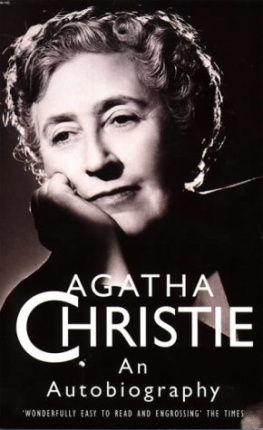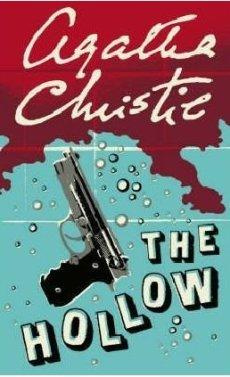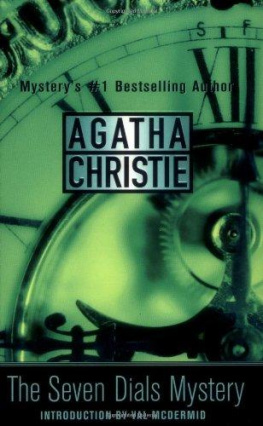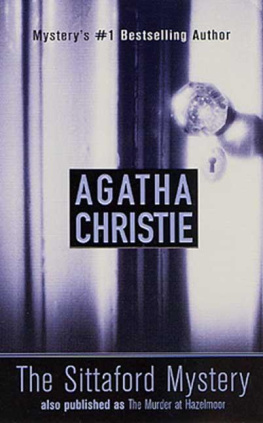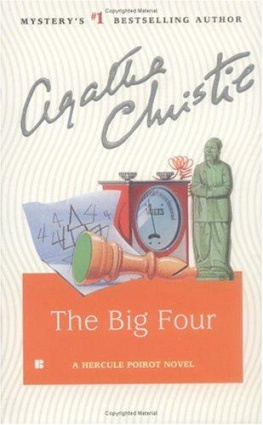Agatha Christie - Destination Unknown
Here you can read online Agatha Christie - Destination Unknown full text of the book (entire story) in english for free. Download pdf and epub, get meaning, cover and reviews about this ebook. genre: Detective and thriller. Description of the work, (preface) as well as reviews are available. Best literature library LitArk.com created for fans of good reading and offers a wide selection of genres:
Romance novel
Science fiction
Adventure
Detective
Science
History
Home and family
Prose
Art
Politics
Computer
Non-fiction
Religion
Business
Children
Humor
Choose a favorite category and find really read worthwhile books. Enjoy immersion in the world of imagination, feel the emotions of the characters or learn something new for yourself, make an fascinating discovery.

- Book:Destination Unknown
- Author:
- Genre:
- Rating:5 / 5
- Favourites:Add to favourites
- Your mark:
- 100
- 1
- 2
- 3
- 4
- 5
Destination Unknown: summary, description and annotation
We offer to read an annotation, description, summary or preface (depends on what the author of the book "Destination Unknown" wrote himself). If you haven't found the necessary information about the book — write in the comments, we will try to find it.
Destination Unknown — read online for free the complete book (whole text) full work
Below is the text of the book, divided by pages. System saving the place of the last page read, allows you to conveniently read the book "Destination Unknown" online for free, without having to search again every time where you left off. Put a bookmark, and you can go to the page where you finished reading at any time.
Font size:
Interval:
Bookmark:
Agatha Christie
Destination Unknown
Chapter 1
The man behind the desk moved a heavy glass paper weight four inches to the right. His face was not so much thoughtful or abstracted as expressionless. He had the pale complexion that comes from living most of the day in artificial light. This man, you felt, was an indoor man. A man of desks and files. The fact that to reach his office you had to walk through long twisting underground corridors was somehow strangely appropriate. It would have been difficult to guess his age. He looked neither old nor young. His face was smooth and unwrinkled, and in his eyes was a great tiredness.
The other man in the room was older. He was dark with a small military moustache. There was about him an alert nervous energy. Even now, unable to sit still, he was pacing up and down, from time to time throwing off a remark in a jerky manner.
"Reports!" he said explosively. "Reports, reports and more reports, and none of them any damn good!"
The man at the desk looked down at the papers in front of him. On top was an official card headed, "Betterton, Thomas Charles." After the name was an interrogation mark. The man at the desk nodded thoughtfully. He said,
"You've followed up these reports and none of them any good?"
The other shrugged his shoulders.
"How can one tell?" he asked.
The man behind the desk sighed.
"Yes," he said, "there is that. One can't tell really."
The older man went on with a kind of machine gun volley abruptness.
"Reports from Rome; reports from Touraine; seen on the Riviera; noticed in Antwerp; definitely identified in Oslo; positively seen in Biarritz; observed behaving suspiciously in Strasburg; seen on the beach at Ostend with a glamorous blonde; noticed walking in the streets in Brussels with a greyhound! Hasn't been seen yet in the Zoo with his arm round a zebra, but I daresay that will come!"
"You've no particular fancy yourself, Wharton? Personally I had hopes of the Antwerp report, but it hasn't led to anything. Of course by now" the young man stopped speaking and seemed to go into a coma. Presently he came out of it again and said cryptically, "Yes, probably and yet I wonder?"
Colonel Wharton sat down abruptly on the arm of a chair.
"But we've got to find out," he said insistently. "We've got to break the back of all this how and why and where? You can't lose a tame scientist every month or so and have no idea how they go or why they go or where! Is it where we think or isn't it? We've always taken it for granted that it is, but now I'm not so sure. You've read all the last dope on Betterton from America?"
The man behind the desk nodded.
"Usual Left Wing tendencies at the period when everyone had them. Nothing of a lasting or permanent nature as far as can be found out. Did sound work before the war though nothing spectacular. When Mannheim escaped from Germany Betterton was assigned as Assistant to him, and ended by marrying Mannheim 's daughter. After Mannheim 's death he carried on, on his own, and did brilliant work. He leaped into fame with the startling discovery of ZE Fission. ZE Fission was a brilliant and absolutely revolutionary discovery. It put Betterton absolutely tops. He was all set for a brilliant career over there, but his wife had died soon after their marriage and he was all broken up over it. He came to England. He has been at Harwell for the last eighteen months. Just six months ago he married again."
"Anything there?" asked Wharton sharply.
The other shook his head.
"Not that we can find out. She's the daughter of a local solicitor. Worked in an insurance office before her marriage. No violent political affinities so far as we've been able to discover."
"ZE Fission," said Colonel Wharton gloomily, with distaste. "What they mean by all these terms beats me. I'm old fashioned. I never really even visualised a molecule, but here they are nowadays splitting up the universe! Atom bombs, Nuclear fission, ZE fission, and all the rest of it. And Betterton was one of the splitters in chief! What do they say of him at Harwell?"
"Quite a pleasant personality. As to his work, nothing outstanding or spectacular. Just variations on the practical applications of ZEF."
Both men were silent for a moment. Their conversation had been desultory, almost automatic. The security reports lay in a pile on the desk and the security reports had had nothing of value to tell.
"He was thoroughly screened on arrival here, of course," said Wharton.
"Yes, everything was quite satisfactory."
"Eighteen months ago," said Wharton thoughtfully. "It gets 'em down, you know. Security precautions. The feeling of being perpetually under the microscope, the cloistered life. They get nervy, queer. I've seen it often enough. They begin to dream of an ideal world. Freedom and brotherhood, and pool-all-secrets and work for the good of humanity! That's exactly the moment when someone who's more or less the dregs of humanity, sees his chance and takes it!" He rubbed his nose. "Nobody's so gullible as the scientist," he said. "All the phony mediums say so. Can't quite see why."
The other smiled, a very tired smile.
"Oh, yes," he said, "it would be so. They think they know, you see. That's always dangerous. Now, our kind are different. We're humble minded men. We don't expect to save the world, only pick up one or two broken pieces and remove a monkey wrench or two when it's jamming up the works." He tapped thoughtfully on the table with his finger. "If I only knew a little more about Betterton," he said. "Not his life and actions, but the revealing, everyday things. What sort of jokes he laughed at. What made him swear. Who were the people he admired and who made him mad."
Wharton looked at him curiously.
"What about the wife you've tried her?"
"Several times."
"Can't she help?"
The other shrugged his shoulders.
"She hasn't so far."
"You think she knows something?"
"She doesn't admit, of course, that she knows anything. All the established reactions: worry, grief, desperate anxiety, no cue or suspicion beforehand, husband's life perfectly normal, no stress of any kind and so on and so on. Her own theory is that he's been kidnapped."
"And you don't believe her?"
"I'm handicapped," said the man behind the desk bitterly. "I never believe anybody."
"Well," said Wharton slowly, "I suppose one has to keep an open mind. What's she like?"
"Ordinary sort of woman you'd meet any day playing bridge."
Wharton nodded comprehendingly.
"That makes it more difficult," he said.
"She's here to see me now. We shall go over all the same ground again."
"It's the only way," said Wharton. "I couldn't do it, though. Haven't got the patience." He got up. "Well, I won't keep you. We've not got much further, have we."
"Unfortunately, no. You might do a special check up on that Oslo report. It's a likely spot."
Wharton nodded and went out. The other man raised the receiver by his elbow and said:
"I'll see Mrs. Betterton now. Send her in."
He sat staring into space until there was a tap on the door and Mrs. Betterton was shown in. She was a tall woman, about twenty-seven years of age. The most noticeable thing about her was a most magnificent head of auburn red hair. Beneath the splendour of this, her face seemed almost insignificant. She had the blue eyes and light eyelashes that so often go with red hair. She was wearing no make-up, he noticed. He considered the significance of that while he was greeting her, settling her comfortably in a chair near the desk. It inclined him very slightly to the belief that Mrs. Betterton knew more than she had said she knew.
In his experience, women suffering from violent grief and anxiety did not neglect their make-up. Aware of the ravages grief made in their appearance, they did their best to repair those ravages. He wondered if Mrs. Betterton calculatingly abstained from make-up, the better to sustain the part of the distracted wife. She said now, rather breathlessly,
Font size:
Interval:
Bookmark:
Similar books «Destination Unknown»
Look at similar books to Destination Unknown. We have selected literature similar in name and meaning in the hope of providing readers with more options to find new, interesting, not yet read works.
Discussion, reviews of the book Destination Unknown and just readers' own opinions. Leave your comments, write what you think about the work, its meaning or the main characters. Specify what exactly you liked and what you didn't like, and why you think so.

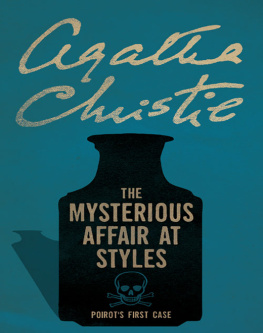
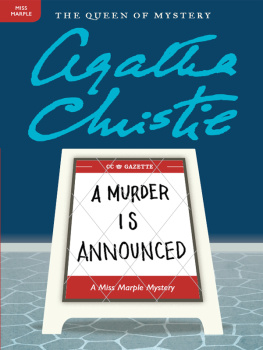
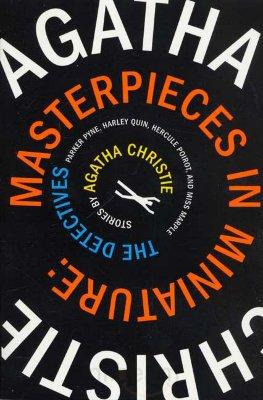
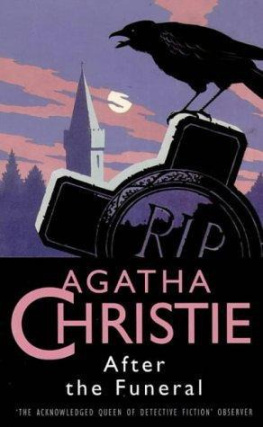
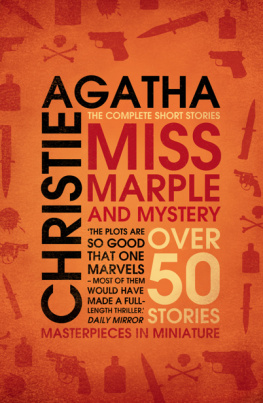
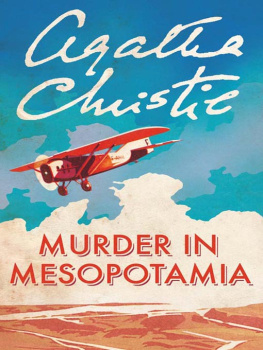

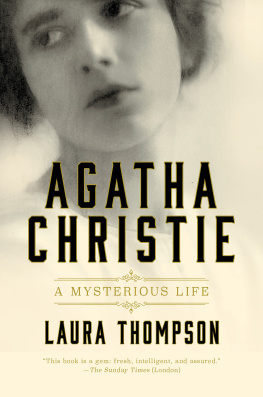

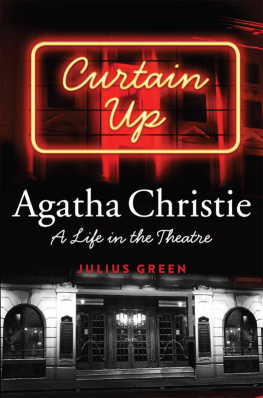
![Agatha Christie [Agatha Christie] - Problem at Pollensa Bay](/uploads/posts/book/140367/thumbs/agatha-christie-agatha-christie-problem-at.jpg)
